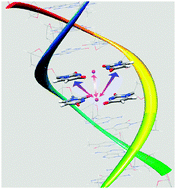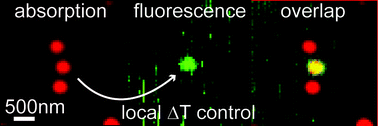PCCP is delighted to announce an exciting forthcoming themed issue:
Physics and Chemistry of Cold Molecules
Guest Editors:
Professors Stefan Willitsch (University of Basel)
Olivier Dulieu (Université Paris-Sud XI)
Matthias Weidemüller (University of Heidelberg)
Roman Krems (University of British Columbia)
The themed issue will be published in 2011 and will be displayed at relevant conferences to maximise the visibility of the work published.
Deadline for Submission: 15 April 2011 – submit now
The field of cold and ultracold molecules is a very active research area which is rapidly evolving. The purpose of this themed issue is to present the latest exciting work in this dynamic area, with an emphasis on new physics and chemistry research made possible by the creation of cold and ultracold molecules.
Topics covered in this issue include:
• Generation and quantum-state control of translationally (ultra)cold molecules and molecular ions
• Theory and experiment of (ultra)cold collisions
• (Ultra)cold chemistry
• Field control of (ultra)cold molecules and (ultra)cold reactions
• Spectroscopy of (ultra)cold molecules
• Novel many-body physics with ultracold molecules
• Coherence and decoherence at ultracold temperatures
• Ultracold polyatomic molecules
Submissions should be high quality manuscripts of original, unpublished research. Both Communications and Full Papers can be submitted for consideration. All submissions will be subject to rigorous peer review to meet the usual high standards of PCCP.
The deadline for submissions to the themed issue is 15th April 2011, though submissions before this date are of course welcomed.
Manuscripts for this PCCP themed issue can be submitted in any reasonable format using our online submissions service. Please indicate upon submission that your manuscript is intended for this themed issue.












